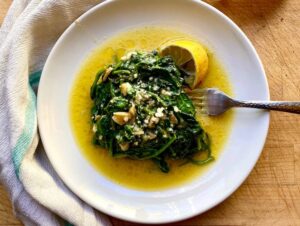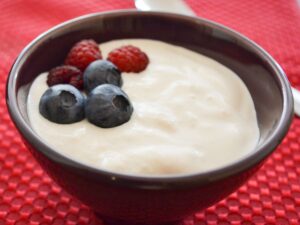A strong immune system is essential for maintaining overall health and well-being. It acts as the body’s defense mechanism against infections, diseases, and various harmful pathogens. While there are many ways to support your immune system, including exercise, sleep, and stress management, nutrition plays a crucial role. In this article, we will explore the top five foods that can help boost your immune system, along with their nutritional benefits and ways to incorporate them into your diet.
1. Citrus Fruits
Nutritional Benefits
Citrus fruits are renowned for their high vitamin C content, a nutrient that is crucial for immune function. Vitamin C is an antioxidant that helps protect cells from damage caused by free radicals. It also plays a role in stimulating the production of white blood cells, which are essential for fighting infections.
- Common Citrus Fruits: Oranges, lemons, limes, grapefruits, and tangerines.
- Vitamin C Content: One medium orange contains about 70 mg of vitamin C, which is approximately 78% of the recommended daily intake for adults.
How to Incorporate Citrus Fruits
- Morning Juice: Start your day with a glass of freshly squeezed orange juice or lemon water to kickstart your immune system.
- Fruit Salad: Add a variety of citrus fruits to your breakfast or snack. Combine oranges, grapefruits, and pomegranate seeds for a refreshing fruit salad.
- Cooking and Baking: Use citrus zest and juice to enhance the flavor of dressings, marinades, and baked goods. Lemon juice can brighten up roasted vegetables or fish dishes.
2. Garlic
Nutritional Benefits
Garlic has been used for centuries for its medicinal properties. It contains a compound called allicin, which has antimicrobial and anti-inflammatory effects. Garlic also supports the immune system by enhancing the function of immune cells, helping to fight off infections.
- Immune Support: Garlic may increase the number of immune cells, such as lymphocytes and macrophages, which help combat viruses and bacteria.
- Nutritional Profile: Garlic is low in calories but rich in vitamins B6 and C, manganese, and selenium.
How to Incorporate Garlic
- Raw Garlic: Add minced raw garlic to salads, dressings, or salsas to reap maximum health benefits.
- Cooked Dishes: Incorporate garlic into your favorite savory dishes, such as stir-fries, soups, and stews. Roasted garlic can also be used as a spread on whole-grain bread.
- Garlic Supplements: If you find it challenging to consume enough garlic, consider garlic supplements, but consult with a healthcare provider before starting any new supplement regimen.
3. Spinach

Nutritional Benefits
Spinach is a powerhouse of nutrients that supports immune health. It is rich in vitamins A, C, and E, as well as antioxidants, which help combat oxidative stress and inflammation. Additionally, spinach contains folate, which is essential for the proper functioning of immune cells.
- Vitamins and Minerals: One cup of cooked spinach provides over 800% of the daily recommended intake of vitamin K, which plays a role in immune function and blood clotting.
- Antioxidants: Spinach is also rich in beta carotene and flavonoids, which can enhance the immune response.
How to Incorporate Spinach
- Smoothies: Blend fresh spinach into smoothies for a nutritious boost. Combine it with fruits like bananas and berries for added flavor.
- Salads: Use spinach as a base for salads, adding other colorful vegetables, nuts, and seeds for extra nutrients.
- Cooking: Add spinach to soups, stews, and pasta dishes. Sautéing spinach with garlic and olive oil makes for a delicious side dish.
4. Yogurt

Nutritional Benefits
Yogurt, particularly the varieties containing live and active cultures, is an excellent source of probiotics. Probiotics are beneficial bacteria that support gut health and immune function. A healthy gut microbiome plays a significant role in regulating the immune system and reducing inflammation.
- Probiotics: Regular consumption of yogurt can help balance gut bacteria, improving digestion and immune response.
- Calcium and Protein: Yogurt is also a good source of calcium and protein, essential for maintaining bone health and muscle mass.
How to Incorporate Yogurt
- Breakfast: Enjoy yogurt topped with fruits, nuts, and a drizzle of honey for a nutritious breakfast.
- Smoothies: Blend yogurt into smoothies for added creaminess and protein.
- Cooking: Use yogurt as a base for salad dressings or as a substitute for sour cream in recipes.
5. Almonds

Nutritional Benefits
Almonds are a nutrient-dense food that provides healthy fats, fiber, protein, and essential vitamins and minerals. They are particularly rich in vitamin E, an antioxidant that plays a critical role in immune function by protecting cell membranes from oxidative damage.
- Vitamin E Content: Just one ounce (about 23 almonds) provides nearly 7.3 mg of vitamin E, which is about 37% of the recommended daily intake for adults.
- Healthy Fats: Almonds also contain monounsaturated fats, which support heart health.
How to Incorporate Almonds
- Snacking: Enjoy a handful of raw or roasted almonds as a healthy snack.
- Toppings: Sprinkle sliced or chopped almonds on salads, yogurt, or oatmeal for added crunch and nutrition.
- Almond Butter: Spread almond butter on whole-grain toast or use it in smoothies for a protein boost.
Conclusion
A well-rounded diet rich in fruits, vegetables, healthy fats, and probiotics can significantly enhance your immune system and overall health. Incorporating these top five immune-boosting foods—citrus fruits, garlic, spinach, yogurt, and almonds—into your daily meals can help fortify your body’s defenses against illness.
Remember that while these foods can provide substantial benefits, maintaining a balanced lifestyle with regular exercise, sufficient sleep, and stress management is equally important for optimal immune function. By making conscious dietary choices and embracing a holistic approach to health, you can empower your immune system and support your body in its fight against infections and diseases.
